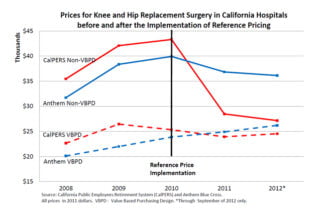I have an editorial at Kaiser Health News this morning noting that under health reform we are about to spend close to $1 trillion enrolling 32 million people in Medicaid and in Medicaid-like private plans and asking what we expect to get in return for all that money. I argue that the 32 million may not get more care or better care; and in any event, low-income families as a group are almost certainly going to get less care than if there had been no health reform at all. Austin Frakt responds with what has now become a familiar refrain at his blog: He dismisses studies showing that Medicaid enrollees do worse than the uninsured, touts studies that show the reverse and claims that new Medicaid enrollees are going to get more care than otherwise. My problem with Austin is the same problem I have with virtually all the defenders of health reform. It has nothing to do with the studies. It is a matter of logic. Namely: what is true for the part is not true for the whole. Defenders of the new law invariably ignore the supply side of the market. They assume that if you insure the uninsured or give people more generous coverage that they will all get more health care without ever asking: who is going to provide that extra care? If you assume that primary care resources are already fully utilized (and in urban areas the evidence for that is overwhelming) then one group can get more primary care only if some other group gets less. The absolute worst feature of Obama Care (and it truly is inexplicable) is that close to 310 million Americans are going to get more primary care coverage than they had before. Not just welfare mothers, but Bill Gates, Bill Gates’ father, Warren Buffett — everyone in the whole country is going to have access to a long list of preventive care services with no deductible or copayment. If they respond to their new incentives, they will all try to get more care than they were getting before. But since more care will not be forthcoming, the waiting times will grow at every emergency room and in every primary care doctor’s office — just as they have in Massachusetts. Everyone who pays below market is going to be pushed to the rear of the waiting lines. This includes the elderly and disabled on Medicare, the poor and near poor on Medicaid and the newly insured in subsidized private plans that pay little better than what Medicaid pays. In other words, all the vulnerable populations are going to have worse access than before. Moreover, as doctors leave the system in droves to provide concierge services to everyone who has money and doesn’t want to wait for care, access for everyone left behind will get even worse. So I ask again: what are we going to get in return for almost $1 trillion in taxpayer dollars that we are about to spend insuring the uninsured?






